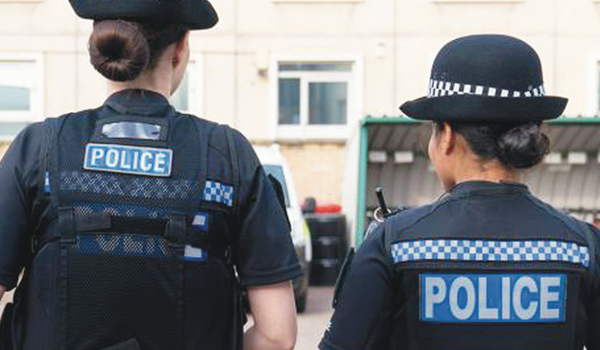Police to target domestic abusers during Euros
A national policing strategy has been developed to help forces combat an expected rise in domestic abuse during the Uefa Euro 2024 championship this summer.
The strategy, supported by Women’s Aid, was produced by the UK’s Football Policing Unit and sent to all police forces in England and Wales. It outlines the need for a proactive, multi-agency approach to safeguard victims and pursue perpetrators, with a focus on:
- Intelligence gathering across football banning orders and serial domestic abusers to identify victims who could be most at risk and target the highest harm offenders in communities;
- Joint patrol cars during key match fixtures, teaming officers with Independent Domestic Violence Advocates (IDVAs), to provide an effective response to incidents;
- A victim-focused approach to safeguarding and investigations, including the use of protective orders; and
- Pre-emptive case file building for known suspects to expedite arrests, investigations and charges where possible.
While football does not cause domestic abuse, the National Police Chiefs’ Council (NPCC) says several factors are thought to exacerbate abusive behaviour during tournaments, including the increased and prolonged consumption of alcohol around matches.
“More research is needed to understand the correlation between international football tournaments and domestic abuse, and data from police forces will be collated at a national level throughout the Euros to support further analysis,” it said.
Assistant Commissioner Louisa Rolfe, NPCC lead for domestic abuse, said: “It is an incredibly sad reality that football tournaments mean an increased risk of domestic abuse for many victims across the UK.
“Football doesn’t cause abuse but we’ve seen, over many years, offending associated with alcohol consumption, violence and other destructive behaviours exhibited by a small number of fans and the intense emotional highs and lows of a tournament, all of which can act as a catalyst for pre-existing abuse.
“Our strategy will help forces prepare for this eventuality, working together with partner agencies to proactively target perpetrators and safeguard victims.
“We also know there are a number of additional factors such as the weather, which countries are playing and the time and day of the week when matches are scheduled that all have an impact on domestic abuse. A key part of our work is collecting data and learning so we can best protect victims.
“I want to encourage anyone who is a victim of domestic abuse to seek help early from either the police or a support service. We will be here around the clock, at the end of the phone to help you.”
Farah Nazeer, chief executive of Women’s Aid, added: “In many ways, high-profile football competitions are a unique opportunity for us to come together and feel real unity and comradery as we root for our team to win.
“However, for those women and children living with domestic abuse, major championships can leave them vulnerable to existing abuse becoming more severe and frequent.
“It is a sad reality that one in four women will experience domestic abuse during their lifetime and it is vital that we, across society, are aware of when these dangers might increase and be on hand to help survivors escape and hold perpetrators accountable.
“We are pleased to be working with the NPCC to raise awareness of this vital issue and come together to make sure women and children are safe throughout the Uefa Euro 2024 championship.”


